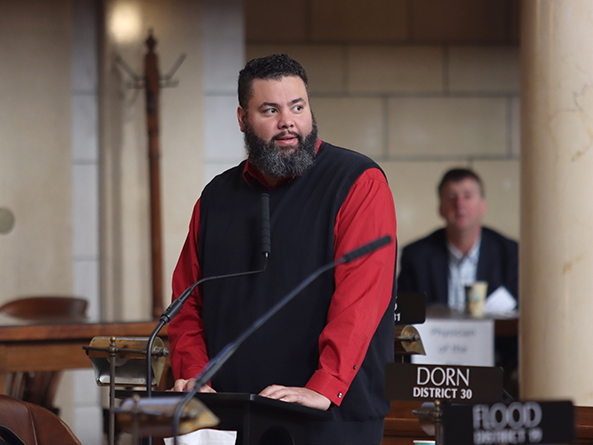TIF review changes clear first round
A bill that would change expedited review of so-called “micro” tax-increment financing projects advanced from general file March 2.

Under a segment of the state’s community development law, Nebraska municipalities are able to designate areas as substandard and blighted, allowing them to be redeveloped. The increased property taxes generated by the improvements are used to pay for the financing of TIF projects.
A bill passed by the Legislature in 2020 created an expedited review process for counties with populations under 100,000 or in areas that have been declared extremely blighted. The decision to allow an expedited review process rests with the governing body of a municipality.
LB1065, which was originally introduced by former North Platte Sen. Mike Groene, was taken up by Omaha Sen. Justin Wayne following Groene’s resignation. The bill would make the following changes to the existing expedited review process:
• increase the maximum TIF project period from 10 years to 15;
• require existing structures to have been within the corporate limits of a municipality for at least 60 years; and
• allow the redevelopment of vacant lots that have been platted and within the corporate limits of a city for at least 60 years.
The bill also would increase the maximum assessed value of property within a redevelopment project that receives an expedited review from $250,000 to $350,000 for a single-family residential development, from $1 million to $5 million for a multi-family development and from $10 million to $15 million for a project involving structures on the National Register of Historic Places.
An Urban Affairs Committee amendment, adopted 40-1, would reduce the maximum assessment for a multi-family project to $1.5 million and eliminate the proposed cap increase for structures on the National Register of Historic Places. The amendment also would clarify that a municipality could declare a portion of an area as substandard and blighted following an appropriate analysis.
Wayne said several communities using micro-TIF were concerned that declaring entire areas as substandard and blighted would push them up against existing caps in state law.
He said developers in North Platte, for example, would like to use micro-TIF but the city has been hesitant to declare areas substandard and blighted out of concern that doing so would cause them to reach the maximum percentage of land that can receive the designation under current state law.
North Platte Sen. Mike Jacobson supported the bill. Jacobson, who served as chairperson of the city’s Community Redevelopment Authority for more than 20 years before being appointed to the Legislature in February, said micro-TIF can be an important affordable housing tool for smaller communities.
“We have housing problems throughout the state; it’s a huge economic development headwind,” he said.
Senators adopted the amendment 40-1 and advanced LB1065 to select file on a 40-0 vote.


